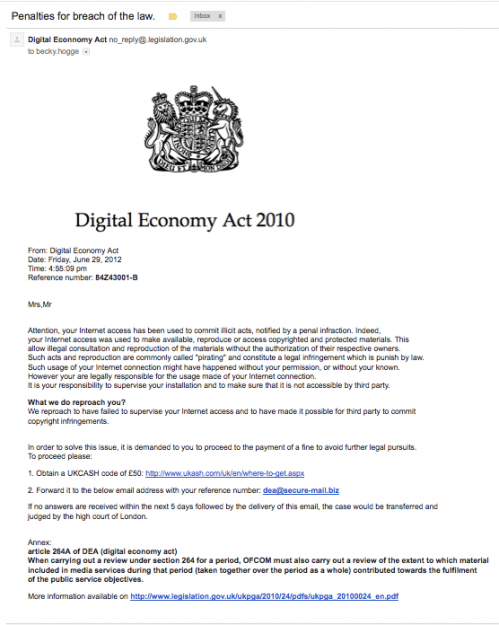The UK’s anti-piracy bill known as the Digital Economy Act (DEA) has given fraudsters new ideas on how to dupe unsuspecting individuals into handing over their money. Shortly after OFCOM released the Initial Obligations Code, users started seeing suspicious emails landing in their inboxes.

“Attention, your Internet access has been used to commit illicit acts, notified by a penal infraction. Indeed, your Internet access was used to make available, reproduce or access copyrighted and protected materials,” the poorly written email reads (via Open Rights Group).
“This allow illegal consultation and reproduction of the materials without the authorization of their respective owners. Such acts and reproduction are commonly called ‘pirating’ and constitute a legal infringement which is punish by law (sic).”
After enumerating all the “crimes” the recipient is responsible for, the crooks give him/her the opportunity to avoid legal actions by paying a £50 (63 EUR or $77) fine, via UKASH, in the next 5 days.
At first glance, the notification may appear legitimate. It displays an official logo and the sum of money mentioned is close to the one presented by OFCOM.
However, there are numerous clues that reveal this scheme’s true purpose.
First of all, once the legislation goes into effect, those accused of pirating copyrighted content will not receive emails, but physical letters from their Internet service providers.
Secondly, those letters will surely not be so poorly written. Furthermore, if it comes down to paying fines, no legitimate institution will request payments made via UKASH, a method commonly used by fraudsters because it’s hard to trace.
For the time being, the law is only a draft and in case it’s approved, the first letters will only go out sometime in 2014.
In the meantime, users are advised to ignore such claims, even if they’ve occasionally downloaded copyrighted content from file-sharing sites.
Source

“Attention, your Internet access has been used to commit illicit acts, notified by a penal infraction. Indeed, your Internet access was used to make available, reproduce or access copyrighted and protected materials,” the poorly written email reads (via Open Rights Group).
“This allow illegal consultation and reproduction of the materials without the authorization of their respective owners. Such acts and reproduction are commonly called ‘pirating’ and constitute a legal infringement which is punish by law (sic).”
After enumerating all the “crimes” the recipient is responsible for, the crooks give him/her the opportunity to avoid legal actions by paying a £50 (63 EUR or $77) fine, via UKASH, in the next 5 days.
At first glance, the notification may appear legitimate. It displays an official logo and the sum of money mentioned is close to the one presented by OFCOM.
However, there are numerous clues that reveal this scheme’s true purpose.
First of all, once the legislation goes into effect, those accused of pirating copyrighted content will not receive emails, but physical letters from their Internet service providers.
Secondly, those letters will surely not be so poorly written. Furthermore, if it comes down to paying fines, no legitimate institution will request payments made via UKASH, a method commonly used by fraudsters because it’s hard to trace.
For the time being, the law is only a draft and in case it’s approved, the first letters will only go out sometime in 2014.
In the meantime, users are advised to ignore such claims, even if they’ve occasionally downloaded copyrighted content from file-sharing sites.
Source


